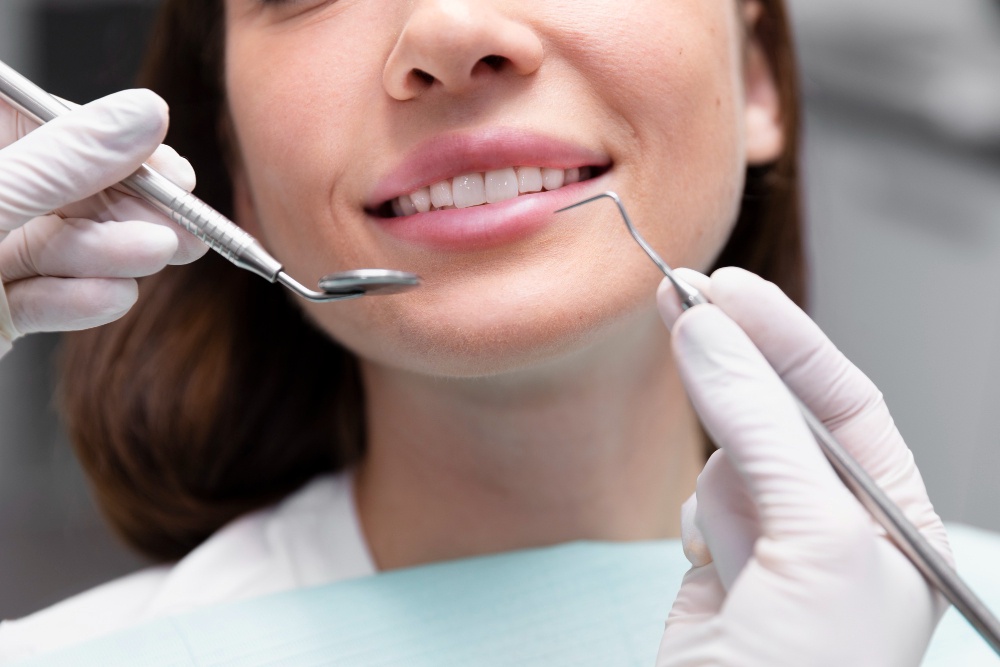A dental crown is a typical dental restoration used to repair damaged teeth or improve their appearance. It is a tooth-shaped cap that is placed over a prepared tooth, covering the entire visible portion above the gumline.
Dental crowns can be made from different materials, each with its own advantages and considerations. This article will explore the different types of dental crowns and the materials used to create them.
Ceramic Crowns:
Ceramic crowns, also known as all-porcelain or all-ceramic crowns, are popular for their natural appearance and excellent aesthetic qualities. They are made from dental ceramic materials that closely resemble the color and clarity of natural teeth.
Ceramic crowns are ideal for restoring front teeth as they provide a lifelike appearance, blending seamlessly with the surrounding teeth. They are highly biocompatible, which reduces the risk of allergic reactions or gum irritation.
Porcelain-fused-to-Metal (PFM) Crowns:
PFM crowns combine the strength of metal with the natural appearance of porcelain. These crowns consist of a metal substructure covered with layers of porcelain. The metal substructure provides durability and strength, while the porcelain overlay creates a tooth-colored outer surface.
PFM crowns are commonly used for both front and back teeth due to their strength and aesthetic appeal. However, the metal component may cause a visible dark line at the gum line over time, which can concern some patients.
Metal Crowns:
Metal crowns, gold or metal alloy crowns, have been used in dentistry for many years. They are typically made from gold, palladium, or a base metal alloy. Metal crowns offer exceptional strength and durability, making them an excellent choice for molars and teeth subjected to heavy biting forces.
They require minimal tooth structure removal, preserving more natural teeth than other crown types. However, their metallic color makes them less suitable for visible areas of the mouth.
Zirconia Crowns:
Zirconia crowns are gaining popularity due to their exceptional strength and durability. Zirconia is a white, biocompatible material that closely mimics the appearance of natural teeth. These crowns are highly resistant to chipping or cracking, making them ideal for front and back teeth restorations.
Zirconia crowns offer excellent aesthetics, with no visible metal component, and can be custom-shaded to match the adjacent teeth. They are an excellent choice for individuals with metal allergies or those seeking a metal-free restoration.
Composite Resin Crowns:
Composite resin crowns are made from a tooth-colored resin material that is directly applied and shaped on the prepared tooth. They are a more affordable option than other crown types but may offer a different level of durability and longevity.
Composite resin crowns are typically used as temporary or provisional crowns while waiting for the permanent crown to be fabricated in a dental laboratory. They can also be used for primary teeth restorations in children.
When determining the most suitable type of dental crown for a patient, several factors are considered, including the tooth's location, the patient's bite, aesthetic preferences, and budget.
It is essential to consult with an Emergency Dentist who can assess the individual's specific needs and recommend the most appropriate crown material.
In conclusion, dental crowns are versatile restorations that can effectively restore damaged teeth and improve their appearance.
The choice of crown material depends on factors such as aesthetic requirements, durability, and the tooth's location. Ceramic crowns provide excellent aesthetics, while PFM crowns combine strength with a natural appearance. Metal crowns offer durability but have a metallic color.
Zirconia crowns provide exceptional strength and a metal-free option. Composite resin crowns are temporary solutions or suitable for primary teeth. Your dentist can guide you in selecting the right type of dental crown to achieve optimal oral health and a beautiful smile.


No comments yet